1. Don’t Touch the Remote When Dad’s Watching TV
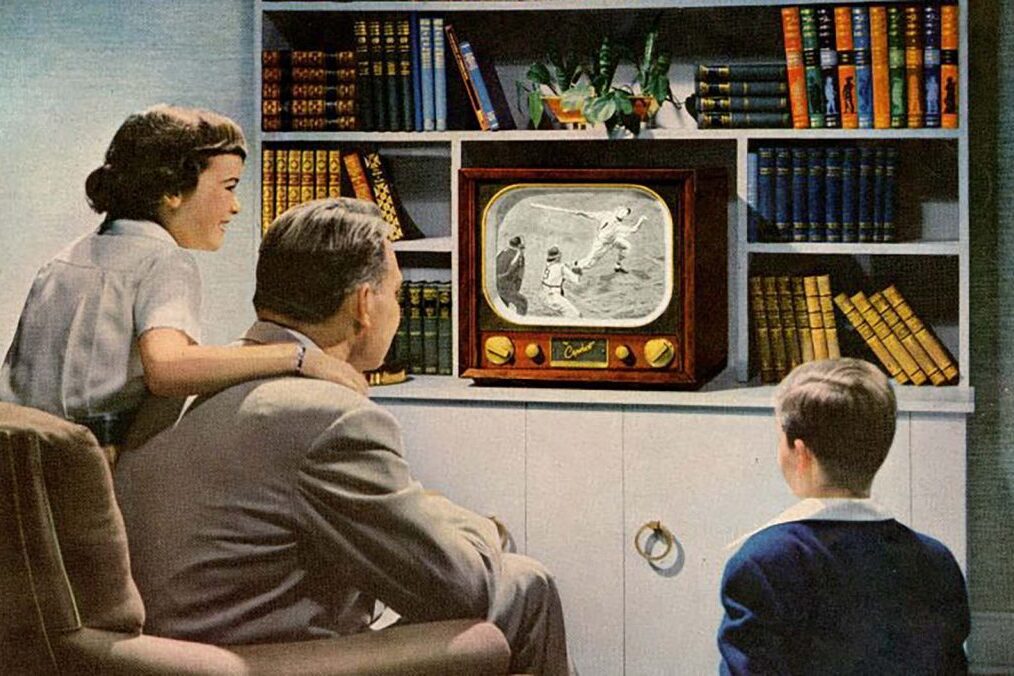
Growing up, some rules didn’t need to be written or shouted. You just knew them. The biggest one was never touch the remote when Dad was watching TV. Whether it was the news or a football match, that remote was sacred property. You could sit close, hoping he’d hand it to you during commercials, but deep down you knew it wouldn’t happen. The living room was his territory and the remote his crown. Everyone else sat quietly, waiting for the credits, knowing that touching it meant asking for trouble without saying a single word.
2. Eat What’s Served or Stay Hungry

Dinner wasn’t up for debate. Whatever was cooked was what you ate, no questions asked. You didn’t get to choose between options or say you didn’t like something. The pot decided your fate, and refusing food meant going to bed with a growling stomach. You might sulk or push the plate away, but hunger always won by nightfall. Mom didn’t argue; she just let time teach you appreciation. That simple rule wasn’t about control but about gratitude. It reminded you that food was love and effort, not a buffet of personal preferences.
3. No Visitors When the House Is Messy
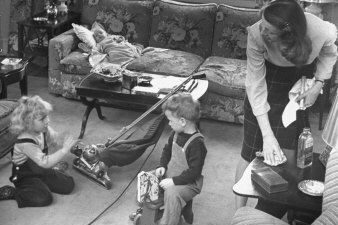
If a friend suddenly showed up, panic followed. You couldn’t just open the door; the house had to look spotless first. Pillows were fluffed, plates hidden, slippers stacked neatly. “Tell them I’m not home” became the emergency plan. A messy home wasn’t seen as carelessness; it was a reflection of the family’s pride. Parents believed every home spoke for its owners, and clutter was a form of disrespect. It wasn’t vanity; it was love expressed through tidiness. Every unannounced knock reminded us that presentation mattered, even when no one planned to visit.
4. Don’t Use the Good Plates

Every family had plates that looked too fancy to touch. They were kept in a cupboard, shining like treasures, reserved for guests who rarely came. You’d stare at them, wondering why they existed if they were never used. “Those are for visitors,” Mom would say, even if no one had visited in months. You learned quickly that using them was crossing a sacred line. Those plates weren’t just dishes; they represented hospitality, care, and preparation for special moments. It was about being ready for company and showing respect, even when no one was coming.
5. Never Talk Back to an Adult

Talking back was never considered confidence; it was rebellion. Adults didn’t need to raise their voices for you to understand the line had been crossed. “Because I said so” ended all arguments. You might have wanted to explain yourself, but wisdom meant silence. The rule taught us that authority deserved respect and that timing mattered more than being right. Parents weren’t perfect, but they demanded honor. That boundary wasn’t about fear but discipline, showing that words carried weight. In a world where opinions are loud, that quiet respect still speaks volumes.
6. Always Greet Before Speaking
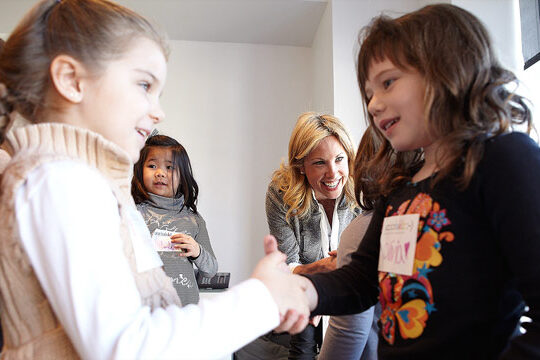
Walking into a room without greeting was like walking into a storm unannounced. You were taught early that respect starts with a simple hello. Whether it was morning, afternoon, or evening, greetings were non-negotiable. It didn’t matter if you were angry or tired; you still had to greet. It was less about tradition and more about acknowledgment. It said, “I see you.” That habit followed us everywhere, from classrooms to workplaces. It shaped how we approach people, reminding us that connection often begins with something as small as a genuine greeting.
7. Never Leave Lights or Fans On

Electricity wasn’t taken for granted, especially when bills came monthly. Parents treated lights and fans like gold. If you forgot to switch them off, someone would remind you sharply, “Do you think we’re printing money here?” You’d run back instantly, heart racing, to flip the switch. That routine became second nature. It wasn’t just about saving money but learning mindfulness. You began to understand that resources had value and waste carried consequences. Even now, grown and independent, most of us still can’t leave a room without turning everything off behind us.
8. Don’t Answer the Door Without Asking

When someone knocked, you froze before moving. The rule was clear: never open the door without permission. Curiosity was natural, but caution came first. “Who’s that?” you’d whisper, waiting for a parent’s signal before touching the handle. It didn’t matter if it was a neighbor or the postman, authority came before action. That hesitation wasn’t fear; it was safety wrapped in discipline. It taught us to be alert, responsible, and respectful of boundaries. Even today, that instinct lingers, reminding us that some doors should only open with wisdom.
9. Respect Quiet Time

Every household had an hour when the world seemed to hush. Maybe it was afternoon after lunch or early morning before sunrise. During those moments, laughter softened, music lowered, and movement slowed. It wasn’t about silence for silence’s sake; it was about respect for rest. Parents needed peace, and we learned patience. That discipline shaped calmness in us. Even now, when life feels noisy, we remember those still hours. They taught us that peace doesn’t just happen, it’s created, nurtured, and preserved with gentle care for others’ comfort and space.
10. Never Waste Food

Throwing food away was unthinkable. You were reminded that others didn’t have enough to eat, and wasting meant disrespecting both effort and blessing. You learned to finish what was on your plate, no matter how little you wanted it. Leftovers weren’t trash; they were tomorrow’s breakfast. Each grain of rice felt valuable, every piece of meat a gift. That rule stayed long after childhood, shaping gratitude and mindfulness. It taught us that food is more than nourishment, it’s love, labor, and appreciation for what others worked hard to provide.
11. Always Help with Chores
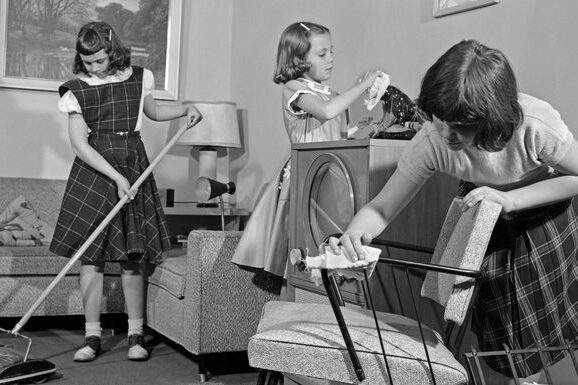
There was no avoiding chores. Everyone had a role, and Saturdays weren’t complete without sweeping, washing, or scrubbing. You didn’t need reminders; you just knew it was your turn. Helping out wasn’t about earning praise; it was about teamwork. It made you feel part of something larger than yourself. Complaining never helped, but finishing tasks brought pride. Over time, those chores taught responsibility, cooperation, and independence. They weren’t punishments but life lessons disguised as household routines. That spirit of contribution still echoes in how we care for our homes today.
12. Don’t Sit in the Adult Chair

Every home had a chair that belonged to an adult. It could be Dad’s seat in front of the TV or Mom’s corner by the window. You could sit anywhere else, but not there. The rule was not spoken, it was understood. That chair carried invisible authority and a promise of calm. Even guests seemed to sense it. Sitting there felt wrong, like wearing shoes that did not belong to you. It was not about fear but respect. That small boundary taught order, territory, courtesy, patience, and kindness. Years later, we choose a favorite seat and feel the same rightness.
13. Never Interrupt Conversations

When adults were talking, you waited. It didn’t matter how urgent your question was, interrupting was forbidden. You’d stand nearby, rehearsing “Excuse me” under your breath, hoping for the perfect pause that rarely came. But you waited anyway. It taught patience, restraint, and emotional awareness. You learned that listening mattered more than speaking. That discipline turned into a lifelong skill, understanding before responding. In a world where everyone talks over each other, that quiet rule remains one of the greatest gifts our upbringing ever gave us.
14. Keep the House Locked
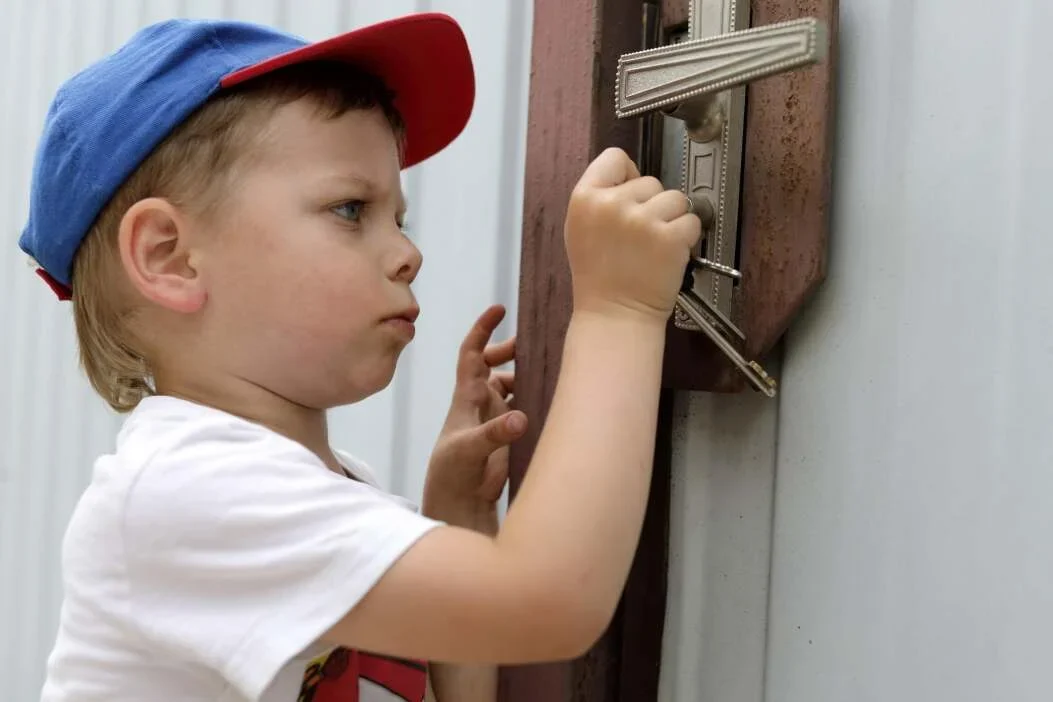
Before bedtime or leaving home, everyone had the same question: “Did you lock the door?” It wasn’t paranoia, it was habit. The routine was sacred: check the doors, windows, and gates before calling it a day. Parents treated it like a ceremony of safety. Forgetting even once could spark a lecture. Over time, it became instinct. Locking up wasn’t just about protection, it symbolized care and responsibility. That familiar click of a turning key still brings comfort today, reminding us that peace begins when everything inside feels safe.
15. Don’t Air Family Matters Outside

“What happens in this house stays in this house” was law. You didn’t discuss arguments, punishments, or private moments with friends. Sharing too much was considered betrayal. Privacy meant pride, and silence meant loyalty. It wasn’t about hiding truth but protecting family dignity. That rule built a bond that felt unspoken but strong. Even now, it shapes how we guard personal stories and family memories. Some things are sacred because they belong only to those who lived them, and that’s what home always meant, trust kept safely inside.
16. Always Say Thank You

Gratitude wasn’t negotiable. You said “thank you” for food, help, advice, and even discipline. Parents drilled it into us until it became habit. Over time, those two words stopped feeling forced and started feeling natural. They softened moments of tension and made kindness echo longer. Saying thank you became more than politeness, it became character. It reminded us that no gesture is too small for appreciation. Even now, hearing those words feels like warmth, proof that good manners never go out of style, no matter how much the world changes.
17. Don’t Sleep Without Saying Goodnight

No matter how tired you were, going to bed without saying goodnight felt incomplete. That single word tied the day together. It was comfort in routine, reassurance that everyone was safe and loved. You might whisper it across a room or call it down a hallway, but it mattered. It was not just formality, it was connection. Maybe that is what the unspoken house rules were about, teaching love in quiet, consistent ways. They shaped who we became with gentle rhythms that linger after lights go out. Each goodnight was a small promise that tomorrow would find us together again.
This story 17 House Rules Every Kid Knew Without Being Told was first published on Daily FETCH


